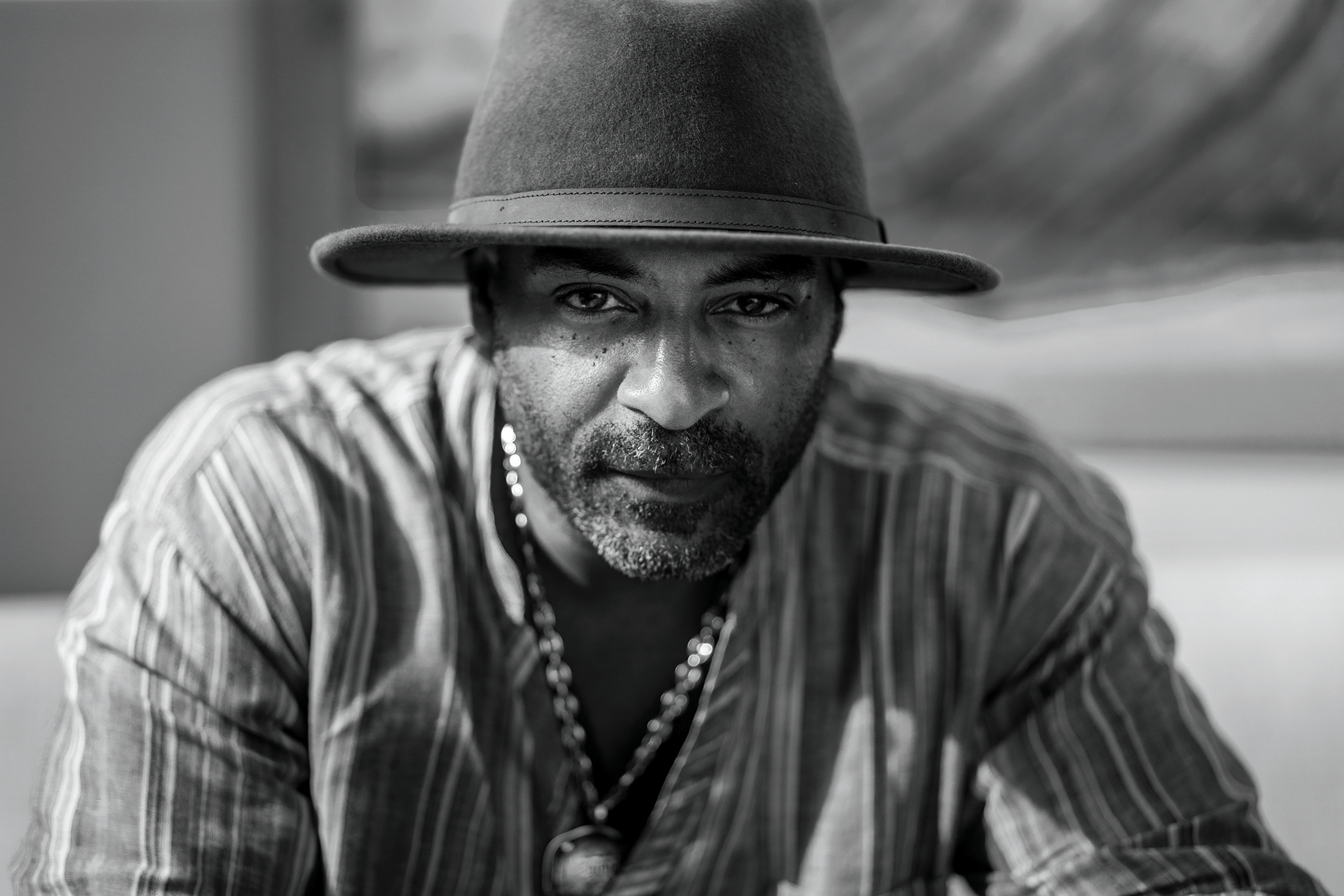
I AM ENDEMIC: [R]EVOLUTIONARY STUART WILSON NATIONAL TRUST FOR THE CAYMAN ISLANDS
I AM ENDEMIC: [R]EVOLUTIONARY STUART WILSON NATIONAL TRUST FOR THE CAYMAN ISLAND
Words by Georgia Austin
To love culture is to know culture. In a fusion of passion and purpose, Stuart Wilson, local musician and Historic Programmes Manager for the National Trust for the Cayman Islands, serves as a conduit between the echoes of the past and the aspirations for the future of Cayman. Through his endeavours, he weaves an intricate tapestry of local heritage, ensuring that its roots remain firmly tapped to the soil of history even as its branches reach towards the unknowns of tomorrow.
Blue Iguanas, Brown Bats, Silver Thatch, Ironwood, parrots…” Stuart Wilson lists Cayman’s endemic species with more pride than recounting his lifetime of musical accolades. His role as Historic Programmes Manager of the National Trust seems a departure from the spotlight of the international reggae scene, however, a mere five minutes in Wilson’s presence reveals the intrinsic bond that unites these seemingly disparate pursuits: Love Culture.
Inked brazenly across his abdomen, Love Culture is both the name of his first band and the name of his record label and entertainment company. Love Culture is the foundation on which the many facets of Wilson’s life are built.
Recalling a rambunctious childhood spent exploring the pristine shores of Grand Cayman, Wilson speaks of a tumultuous school experience, grinning whilst sharing that he bounced around nine schools before ‘settling down’ at Savannah Primary. He eventually graduated from Triple C with a slew of athletic awards and academic achievements to his name.
As MTV and VH1 broadcasted the music of the 80s, Wilson was captivated. Having memorised his father’s record collection, mostly containing Bob Marley tracks, Wilson leaned into his hobby as he grew. In 1990, whilst attending a Maxi Priest concert at the Lions Center with lifelong friend and promoter Kenny Rankin, 12-year-old Wilson experienced an epiphany where he was seized with the overwhelming calling to become a musician. He recalls explaining to Rankin on their way home from the concert that he “had to see the reggae scene up close.” This experience signalled the beginning of Wilson’s artistic evolution.
By age 18, he had formed ‘Love Culture’ alongside friend and classmate Samuel Rose, now a successful local musician and founding member of Swanky Kitchen Band.
After attending university in Miami, Wilson returned home to work as a journalist, but music remained ever-present. His creative spirit was drawn to luminaries, Bob Marley, Elvis Presley and The Beatles, and forever enthralled by the rhythms of the Caribbean.
Seeking a deeper immersion into the culture of reggae, in 2013, Wilson embarked on a transformative journey to Jamaica. He was soon gracing stages alongside stars such as Damian Marley, Beres Hammond, Michael Bolton, and Roberta Flack, with his hybridised genre of ‘Reggae, Blues, Jazz and a whisper of Classical Rock.’ Advocating for a departure from familiar reggae tropes, Wilson dubs this playful amalgamation ‘Reggae Renaissance’.
Career highlights include a 2014 appearance at Reggae Sumfest, a three-month tour of Thailand with a staggering 72 performances, and collaborations with producer Clive Hunt, renowned for his work with musical icons Peter Tosh and The Rolling Stones.
With growing international success, Wilson’s fluid and revolutionary nature became at odds with his trajectory. Musical success required permanence. He muses, “I didn’t want to be trapped into a particular way of being because of how the public perceived me.” Hybrid and ever evolving, he describes his calling to create as “like a bird flying south in winter.” However, just like his music, Stuart Wilson eschews a singular identity. “I am as free as a bird,” he shares joyfully.
There followed a five-year sojourn in London, where Wilson continued to perform while working at Madame Tussaud’s Wax Museum and as a Virgin Active lifeguard, but his heart yearned for his motherland. “I tried everything else, I went everywhere else,” he reflects. “But my heart is in Grand Cayman.”
Wilson’s 2019 return became a pilgrimage of self-discovery, reaffirming his devotion to his familial bonds and his small island home. His ethos, Love Culture, evolved again as he assumed the role of Historic Programmes Manager at the National Trust.
With Cayman often referred to as ‘the islands that time forgot’, Wilson recognised the importance of honouring his culture through the preservation of the islands’ built heritage. Managing 12 historic sites, Wilson’s work preserves the histories of Cayman ensuring that we, ourselves, do not forget.
Restoring the Eldemire House in Cayman Brac, a famed shelter during the 1932 storm and subsequent community centre following the devastation, has ensured the historic home continues to bear witness to the resilience of generations of islanders in the face of adversity. It is a poignant testament to both the fortitude and fragility
of Cayman’s people.
The Clayton Nixon House, a dwelling thought to be built by an enslaved family in the 1800s, speaks to the craftsmanship of Caymanians. Wilson recounts supporting the relocation of this building from Goring Avenue to Mission House in 2020. Uprooted from its historical location, the site challenges the significance of historical context amidst the rapid development of Grand Cayman and its history is imbued with fresh relevance in the contemporary landscape. Wilson is a proud steward of these enduring narratives.
Most recently, the National Trust for the Cayman Islands embarked on an archaeological excavation of Jackson’s Wall to uncover the unwritten history of the location. After preliminary searches, bullets and bones, among other artefacts, were discovered. Wilson is excited for the continued exploration to uncover the untold stories of the past for current and future generations.
As islands historically sustained by humble fishermen, undesired by colonial powers due to a perceived lack of natural resources, Wilson’s work proudly underscores a narrative of remarkable resourcefulness. This historical context, where scarcity birthed ingenuity, has culminated in Cayman’s position as a global leading financial centre.
Undeterred by the notion of personal acclaim, Wilson remains steadfast in his commitment to his higher purpose: Love Culture. When asked about legacy, he casually shrugs, declaring, “I am not concerned for legacy. Let the people decide.”
Through it all, Wilson’s devotion to music remains steadfast. Frequenting local venues, his music inspires cultural pride in audiences islandwide. Likewise, his dedication to nurturing Cayman’s cultural heritage for future generations calls to mind the timeless saying, “A culture grows great when men plant trees in whose shade they will never sit.” Wilson’s [r]evolutionary nature unites all in his path towards one love: a profound reverence for Cayman’s culture.
As the sea breeze whispers through the seagrape trees of South Sound’s Dart Park, Wilson’s presence resonates with a profound sense of belonging. Framed by the timeless tableau of nature, the boundless expanse of ocean stretches towards the horizon, mirroring Wilson’s spirit, forever in harmony with the ebb and flow of existence. And, without skipping a beat, he smiles, “I am endemic.”
FOR MORE INFO CONTACT THE NATIONAL TRUST FOR THE CAYMAN ISLANDS:
Click: www..nationaltrust.org.ky
Dart Park, South Church Street, George Town, Grand Cayman, Cayman Islands
FOR MORE INFO CONTACT THE NATIONAL TRUST FOR THE CAYMAN ISLANDS:
Click: www..nationaltrust.org.ky
Dart Park, South Church Street, George Town, Grand Cayman, Cayman Islands







